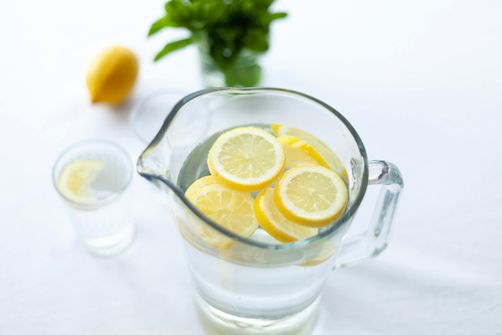
Separating Fact from Fiction: Do Detox Drinks Really Work?
Detox beverages have gained massive popularity in recent years, with promises of everything from quick weight loss to complete bodily "cleansing." Fro...

Struggling to shed pounds without sacrificing muscle? You’re not alone.
Here, we’re cutting through the noise to bring you a clear, actionable plan that burns fat and boosts muscle. Ready to get lean without losing your gains? Let’s dive in and crush those goals together.
The science of weight loss versus muscle loss is rooted in understanding energy balance and the body’s preference for fuel sources. When in a calorie deficit, the body burns stored fat for energy, but it can also turn to muscle. Muscle mass is metabolically active, meaning it burns calories even at rest, making it crucial for a healthy metabolism. According to a study in the Journal of Applied Physiology, every pound of muscle burns approximately 5-7 calories per day at rest, illustrating muscle’s role in weight management.
Choosing whole, nutrient-dense foods is paramount. A diet rich in vegetables, fruits, lean proteins, and whole grains provides the vitamins, minerals, and fiber essential for maintaining muscle mass and supporting weight loss. For instance, dietary fiber, found in whole grains and vegetables, has been shown to play a role in regulating body weight, with adults recommended to consume between 25 to 38 grams per day according to the Academy of Nutrition and Dietetics.

The International Society of Sports Nutrition suggests that higher protein diets, consisting of 2.3 to 3.1 grams per kilogram of lean body mass, are beneficial for those in calorie deficits to preserve muscle mass. For a 80 kg woman with 20% body fat, this translates to approximately 147 to 198 grams of protein per day.
A balanced diet should include 45-65% of calories from carbohydrates and 20-35% from fats, as recommended by the Dietary Guidelines for Americans. Carbohydrates should primarily come from complex sources like oats, quinoa, and sweet potatoes, while fats should be sourced from healthy options like avocados, nuts, and olive oil.
Staying hydrated is essential for optimal metabolic function and muscle health. The Institute of Medicine recommends a daily water intake of 3.7 liters for women. This includes all fluids and water-rich foods.
Eating protein-rich meals across the day can support muscle synthesis. A study in the Journal of Nutrition found that evenly distributing protein intake across breakfast, lunch, and dinner was more effective in promoting muscle health than skewing intake towards one meal.
For those looking to supplement their diet, whey protein, creatine, and branched-chain amino acids (BCAAs) have been shown to support muscle maintenance during weight loss phases. For instance, creatine supplementation can enhance strength and muscle mass during resistance training, as per a review in the Journal of the International Society of Sports Nutrition.
Strength training should be the cornerstone of any exercise regimen aimed at preserving muscle. Research indicates that engaging in resistance training at least twice a week can help maintain muscle mass during weight loss, according to the American College of Sports Medicine.
Incorporating cardio is essential for heart health and accelerating fat loss. However, balancing it with strength training is key to preserving muscle mass. Moderate-intensity cardio for 150 minutes a week, or 75 minutes of high-intensity activity, is the recommendation by the American Heart Association.

Recovery is as critical as the workout itself. Poor recovery can lead to muscle loss and decreased performance. Adults should aim for 7-9 hours of sleep per night as per the National Sleep Foundation guidelines, to support muscle recovery and weight loss.
Sleep deprivation can significantly impact muscle recovery and weight loss efforts. A study in the Annals of Internal Medicine found that cutting back on sleep reduced fat loss by 55% even when dietary intake was controlled.
High stress levels can lead to weight gain and muscle loss by increasing cortisol levels. Engaging in regular stress-reducing activities, like meditation or yoga, can mitigate these effects. The American Psychological Association underscores the importance of managing stress for overall health and well-being.

Progress requires time and consistency. A realistic timeline for losing weight, as recommended by the Centers for Disease Control and Prevention (CDC), is 1-2 pounds per week, indicating a gradual and sustainable approach is most effective.
When progress stalls, revisiting and adjusting the dietary plan, increasing exercise intensity, or incorporating new activities can help overcome plateaus. Regularly assessing and adjusting caloric intake and expenditure is critical for continued progress.
Losing weight without losing muscle requires a strategic approach, integrating nutrition, exercise, and lifestyle adjustments. Understanding the physiology behind weight loss and muscle preservation, and adopting a balanced and informed approach, can lead to successful and sustainable outcomes. Remember, the journey to a leaner, stronger body is a marathon, not a sprint. Embrace the process, and the results will follow.
A: Yes, it’s definitely possible! The key is finding the right balance in your diet, exercise, and lifestyle habits to ensure you’re targeting fat loss while maintaining muscle mass.
A: Aim for about 0.7 to 1 gram of protein per pound of body weight each day. This range supports muscle repair and growth, crucial for maintaining muscle during weight loss.
A: Cardio, when done in moderation and balanced with strength training, does not necessarily lead to muscle loss. It’s about finding the right mix and not overdoing it.
A: Compound exercises, such as squats, deadlifts, and bench presses, are your best bet. These movements engage multiple muscle groups, encouraging muscle growth and maintenance even on a calorie deficit.
A: Sleep is critical. It affects recovery, hormone balance, and overall health, directly impacting your ability to lose fat and preserve muscle. Aim for 7-9 hours per night.
A: Reevaluate your diet to ensure you’re in a slight caloric deficit and consider shaking up your workout routine. Also, check that you’re getting enough protein and rest—sometimes, small adjustments can help break through a plateau.

Detox beverages have gained massive popularity in recent years, with promises of everything from quick weight loss to complete bodily "cleansing." Fro...

Staying hydrated is essential for your overall health, but plain water can get a little boring. The good news is that infused water—packed with fruits...

In recent years, the rise of non-alcoholic spirits has taken the social scene by storm, offering women (and everyone!) the opportunity to enjoy a craf...

Socializing with cocktails can be fun, but many traditional drinks are loaded with sugar and artificial ingredients that may leave you feeling less th...

The Female Athlete Triad is a serious medical condition that affects physically active women and girls, especially those involved in competitive sport...